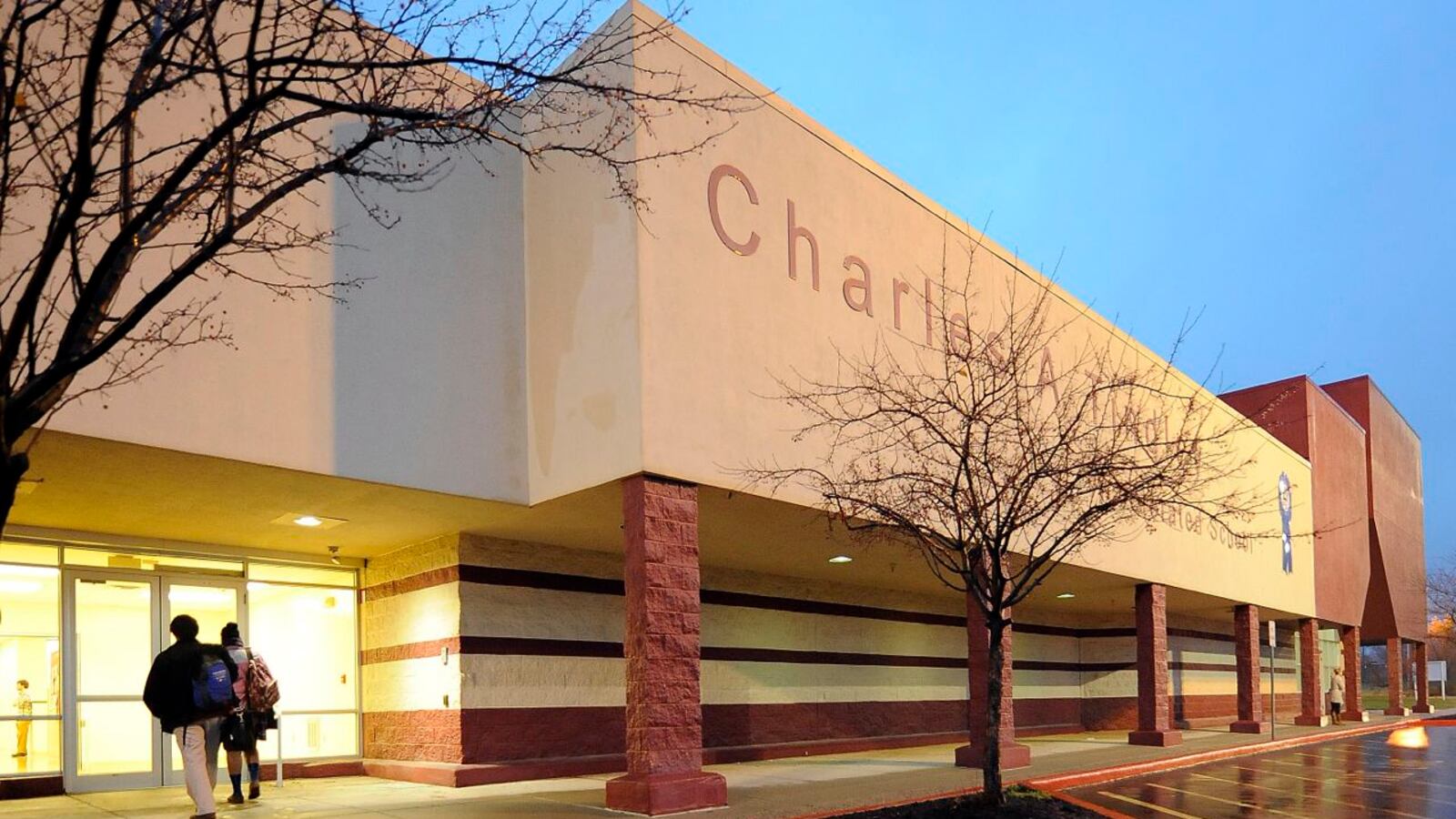To Robert Vane, a Republican strategist who used to work for Mayor Greg Ballard, there is only one sensible posture for an Indianapolis mayor to have on education.
“I believe the mayor has to be an activist,” he said.
That’s a common sentiment among both Republicans and Democrats who have been involved in pushing for changes in the way the city’s schools are run.
Advocates on both sides of the political fence say they are optimistic about Joe Hogsett, who has emerged in the last month as a leading contender for mayor in 2016. But they also admit that they really don’t know much about what he thinks about charter schools, the structure of the Indianapolis Public School Board and other issues that the next mayor is likely to confront.
“I don’t know where he is on education issues,” said Gordon Hendry, a member of the Indiana State Board of Education and a former deputy mayor under Ballard’s Democratic predecessor, Bart Peterson. “But I think, should Joe Hoggsett be elected mayor, he would be an activist. That’s the kind of guy he is. He would want to roll up his sleeves and consider the best policies possible.”
The fast-changing mayor’s race has raised questions about the possibility of a change in direction for the city’s approach to education.
Just months ago, at the summer’s end, there was every reason to believe Ballard would be a formidable candidate seeking a third term in 2016. A third term likely would have meant a continued push for charter schools. Over his six years in office, Ballard has aggressively backed the opening of new charter schools and other changes.
But Ballard announced last month that he would not run, followed by Hogsett’s announcement that he would. Since then, the other Democrat in the race, state Rep. Ed Delaney, ended his campaign, and the Indianapolis Star reported the Republicans have so far struggled to recruit a replacement for Ballard.
That means the chances that the city’s mayoral leadership could switch political parties, as it did in 2008 when Ballard defeated Peterson, are considerably greater.
Just how much a party switch would matter when it comes to education is unclear. Peterson and Ballard shared the view that Indianapolis needed more good schools, and both supported expanding the city’s charter sector: Peterson was the first mayor in the nation to sponsor charter schools, and Ballard nearly doubled the number of mayor-sponsored charter schools to 35 this year.
Their bipartisan support for charter schools means the publicly funded but privately managed schools are here to stay, said David Harris, a former Peterson aide who helped him co-found The Mind Trust, a nonprofit that advocates for educational change, including charter schools, in Indianapolis.
“I don’t see how anyone could be a candidate for mayor and do anything but embrace the success of the charter sector that we have in Indianapolis,” he said. “My expectation would be whoever wins, we will have someone who is supportive of the charter sector.”

Indeed, in an interview last week with Chalkbeat, Hogsett said he supports charter schools. But how strong that support would be, and where he would stand on other issues, remains to be seen, and in some ways Hogsett sounded very different from Ballard and Peterson.
He cited his early legal work on behalf the Indiana State Teachers Association — the state’s largest teachers union — and called teacher pay his top education issue. Ballard and charter school advocates have been at odds with the ISTA, which argues charter schools, which are almost always non-union, often mean less pay and fewer job protections for teachers.
Rather than describe himself as a force for change focused heavily on inner-city schools in the mold of Peterson and Ballard on education, Hogsett pitched himself in a more centrist role. He said he hoped to be a “convener” of conversations about education and a “cheerleader” for public education, promising that his focus would extend beyond charter schools and Indianapolis Public Schools.
“I think how I might be different than previous mayors is I intend to be fully engaged and immersed in how education is being delivered in all four corners of this county,” Hogsett said. “We do tend to focus on IPS, with good reason admittedly. But the mayor must not lose sight of the fact that there are 11 school corporations in this city. Each of them are worthy of the mayor’s time and attention.”
Hendry cautioned that there is no reason to believe Hogsett would act differently than his predecessor when it comes to advocating for charter schools or creating urgency to improve schools in the center city.
“He’s always been a visionary so I think I would place him more in the Mayor Bart Peterson camp,” he said. “I think he will listen to the best minds within our party and formulate the best policies.”
That’s what Vane expects, too, citing the fact that both Hogsett and Peterson are strongly connected politically, having both worked for former Indiana governor and U.S. senator Evan Bayh.
“I would be absolutely shocked, and really dismayed, if he walked us back,” Vane said.
While the prospect of a Hogsett mayoralty is drawing bipartisan optimism, there are also people on both sides of the aisle who are wary about his education outlook.
Some Republicans worry that Hogsett will be too heavily influenced by unions and Democratic lawmakers who have raised concerns about charter schools and the education policy shifts of the last decade.
“There is a certain faction of the Democratic Party that has never embraced the sort of reforms that we have done in Indiana,” Vane said. “If they took over in the city of Indianapolis and held too much sway it would impact the kids who need it most.”
And Democrats who are wary about recent education policy changes hope that Hogsett would be more cautious than Ballard about school choice and accountability.
“He needs to be very cognizant of what the majority of people within the Democratic Party believe,” said Rep. Greg Porter, a Democrat from Indianapolis. “The party is not as fractured as people say.”
Despite Hogsett’s ISTA connection, the union’s president, Teresa Meredith, said she is looking forward to meeting with him to learn more about his views. Hogsett, she said, should rely on teachers to inform his policy choices.
“There are some great teacher leaders around the city,” she said. “It would be smart of him to talk with them before he came down strongly committed on any policy in education. He needs to hear what teachers think. He need to hear what it’s like to deal with student poverty issues every single day, so he has a true understanding of the whole picture of what it’s like in Indianapolis.”
Porter also is among the high profile Democratic leaders lining up to meet with Hogsett to discuss education and other issues with him. In the meantime, he said he hopes that Hogsett sees education as part of the puzzle for improving the city, along with neighborhood revitalization and other efforts, rather than as a silver bullet.
“He needs to understand all the complexities going on: mobility, neighborhood stabilization and education,” Porter said. “All of that is important.”
For true believers in charter schools, including those who are Democrats, the myriad issues facing the city is exactly why they hope Hogsett would continue Ballard’s and Peterson’s support.
“To me the most important thing for the future of the city is we continue to advance school reform,” Harris said. “If we are unable to do that it would make all other goals for the city impossible to achieve.”

